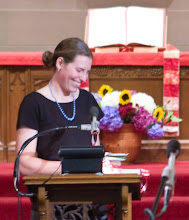all go to one place; all are from the dust, and all turn to dust again
-ecclesiastes 3.20
The liturgical season of Lent begins in a short two weeks. There are many reasons why this Lent in particular promises meaning and growth. Uncertainty is ahead and it has begun to creep into my present, with my interim pastor position ending in August and our place Seattle possibly ending too. None of this is good or bad but it calls us to a trust beyond what has been required so far in this life. So we enter Lent, the forty days of fasting and prayer, almsgiving and introspection, wondering and wandering, journeying toward the cross.
Wendell Berry often writes of limits and of knowing our place. It is tempting, especially these days, to wrest control from the universe - to find our own solutions, to plan our own paths. We leave the dinner table to google an answer to a question, leaving our common place for instant, fleeting gratification. For many of us, we can neither change nor know our own future much less change or know our whole world. For all of our living, truly we move from ashes to ashes and dust to dust. In becoming human we are set in time and place, boundaried into an existence that we have not chosen. So was Jesus. In our limits and knowing our place, we keep good company.
Lent invites us to relationship with finitude and the profound spirituality that comes knowing our bodies belong to the earth and are always returning home.
The resting place of my great grandparents, Fred and Hannah (Harms) Klaassen, whose bodies are part of my own. Grace Hill Mennonite Church cemetery in rural Whitewater, Kansas


